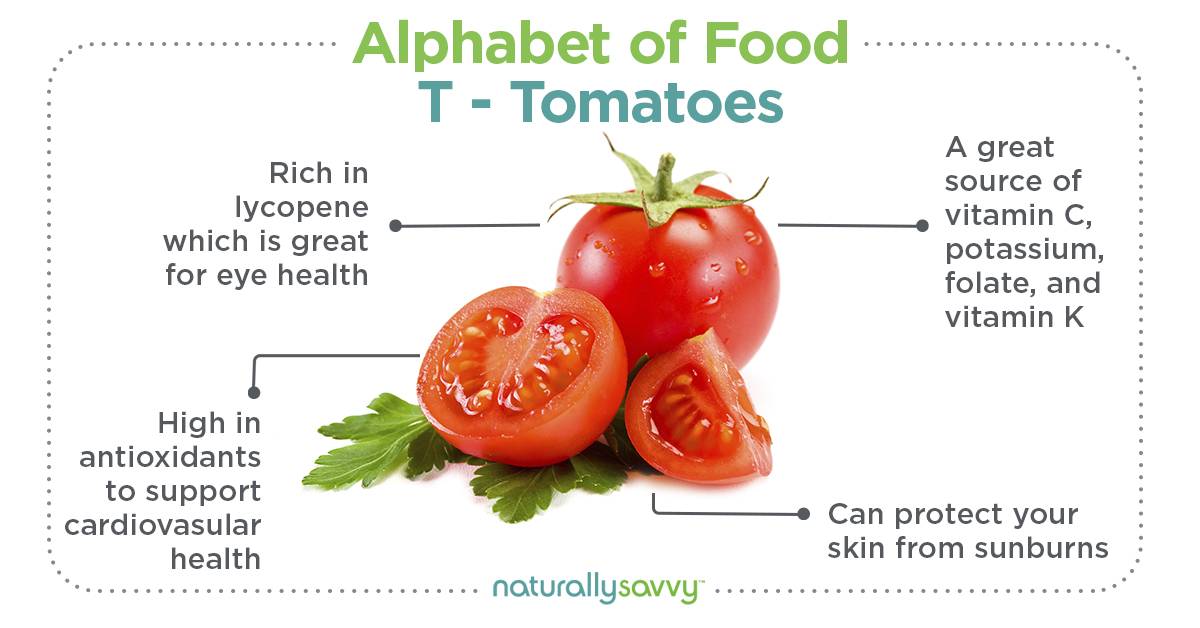
Of the scores of fruits and vegetables available to you, when it comes to tomato nutrition, why should you be eating more tomatoes? We are so glad you asked! In fact, we are going to answer lots of other questions about tomatoes for you, such as tomato origin, their nutritional value, tomato vitamins, the amount of fiber in tomatoes, and health benefits of tomatoes. So let’s get started!
Origins of tomatoes
Tomatoes are believed to have originated in countries along the western side of South America, which includes Peru, Chile, Ecuador, and Colombia. However, they were later cultivated in Mexico. The first tomatoes grown are believed to look like today’s cherry tomato rather than the larger fruits we commonly see in the market.
Tomatoes are a member of the nightshade family, which is viewed as a potentially deadly group of foods. At one time, the Europeans did not trust the bright, shiny fruits and considered them to be poisonous. Although the leaves are toxic, the wide popularity of these fruits has shown the poisonous idea to be untrue.
Understanding tomato nutrition
These delicious fruits especially shine in the area of nutritional value. One interesting thing about tomato nutrition is that one specific nutrient for which it is well known—lycopene—is enhanced when they are cooked and processed into foods such as:
- Ketchup
- Soup
- Sauce
- Juice
- Paste
The redder the tomato, the higher the lycopene content. For most other nutrients, fresh tomatoes are a better source.
For example, raw tomatoes are excellent sources of vitamins C, K, and biotin as well as the mineral molybdenum. They also provide very good levels of vitamins A, B3, B6, folate, and E, along with copper, manganese, phosphorus, and potassium. However, levels of vitamin C decline by up to 30 percent when tomatoes are cooked.
We would like to point out the amount of fiber in tomatoes, which is worth noting. One cup of fresh tomato slices provides more than 2 grams of fiber, which is important for heart and colon health.

Health benefits of nutrient tomatoes
Tomatoes provide a wealth of health benefits. You will want to include more in your diet, fresh or minimally processed, so you can reap the advantages of biting into these luscious fruits. For example:
- Source of potent antioxidants. Tomatoes are a treasure chest of phytonutrients with free-radical fighting powers, including carotenoids, fatty acid derivatives, flavonoids, and saponins. In addition to these antioxidants, these fruits also have the traditional tomato vitamins with antioxidant powers—A, C, and E; and the antioxidant minerals, chromium, manganese, and zinc.
- Anti-inflammatory abilities. The same phytonutrients that offer antioxidant powers also help fight inflammation. One of those phytonutrients is naringenin, a flavonoid found in tomato skin and known to reduce inflammation. Some of the conditions associated with inflammation include asthma, arthritis, inflammatory bowel disease, diabetes, and heart disease.
- Cardiovascular benefits. Tomatoes are helpful for the cardiovascular system in three main ways: their antioxidant powers, their ability to regulate fats in the bloodstream, and their impact on platelets. Lycopene is the star when it comes to benefits for the cardiovascular system, because it works to reduce damage to cell membranes by fats in the blood. Research shows that eating tomatoes has been shown to reduce levels of total cholesterol, bad cholesterol (LDL), and triglycerides. Finally, too much clumping of platelet cells can cause blood clots and resulting problems, such as heart attack and stroke. These fruits contain various phytonutrients that can help prevent excessive clumping.
Read about can tomatoes protect you from skin cancer
- Cancer crusader. Men may be familiar with research indicating that the lycopene in tomatoes is associated with a reduced risk of prostate cancer. Another important substance in tomatoes that helps lower prostate cancer risk is alpha-tomatine, which has been shown to affect developing prostate cancer cells. Other cancers that may respond well to tomato consumption include non-small cell lung cancer, pancreatic cancer, and breast cancer, but more research needs to be done.
- Skin health. If you are looking for protection against sunburn, tomatoes may be one solution. Eating foods rich in lycopene may protect against sunburn.
Why else should you eat tomatoes?
Let’s face it: tomatoes are just great tasting and fun to eat! They spark up a fresh green salad and sandwiches, add some zing to dips, are a great flavor in both hot and cold soups, and jazz up casseroles and stews. Whether you choose heirlooms, cherry tomatoes, beefsteak varieties, roma, or any of the other dozens available, you can’t go wrong! What are some of the ways you use tomatoes in your meals? Share your ideas with us!
Read This Next
Omega-3 Cucumber & Tomato Salad Recipe
Sources
Aust O et al. Supplementation with tomato-based products increases lycopene, phytofluene, and phytoene levels in human serum and protects against UV-light-induced erythema. International Journal for Vitamin and Nutrition Research 2005 Jan; 75(1): 54-60
Bharti S et al. Preclinical evidence of the pharmacological actions of naringin: a review. Planta Medica 2014 Apr; 80(6): 437-51
Cornell University. Cooking tomatoes boosts disease-fighting power. ScienceDaily 2002 Apr 23
Filippone PT. The history of tomatoes as food. The Spruce Eats 2019 Jan 16
George Mateljan Foundation. Tomatoes. The World’s Healthiest Foods
Graff RE et al. Dietary lycopene intake and risk of prostate cancer defined by ERG protein expression. American Journal of Clinical Nutrition 2016 Mar; 103(3): 851-60
Petre A. Lycopene: Health benefits and top food sources. Healthline 2018 Oct 3











